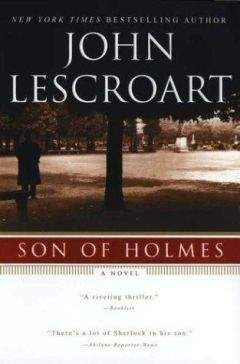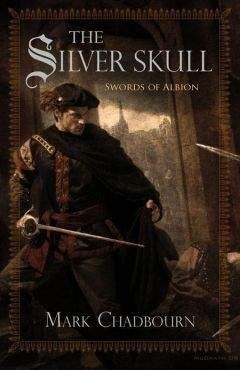Jean Plaidy - The Murder in the Tower: The Story of Frances, Countess of Essex

Скачивание начинается... Если скачивание не началось автоматически, пожалуйста нажмите на эту ссылку.
Жалоба
Напишите нам, и мы в срочном порядке примем меры.
Описание книги "The Murder in the Tower: The Story of Frances, Countess of Essex"
Описание и краткое содержание "The Murder in the Tower: The Story of Frances, Countess of Essex" читать бесплатно онлайн.
It was a very excited, hopeful young man who rode into the tilting yard on that day.
He could see the King seated on his chair of state, the light catching the jewels on his quilted doublet. James did not wear those costly garments with elegance; but what did that matter when it was well known how he admired that quality in others. Perhaps it was because he was uncomely, bulky and weak in the legs that he so admired physical perfections in others. And there was the Queen—but wise young men did not concern themselves overmuch with the Queen. If a young man could make no headway in the King’s Court, then he might try in the Queen’s; and there had been cases when the Queen’s favor had actually led to the King’s. But Anne was not pleased by the King’s delight in handsome young men, so at this stage she need not be considered.
There was Prince Henry, himself personable, but very young, of course. He too had his friends and Robert had heard that he used his influence with the King for the benefit of those he favored. So there they were—the royal trio on the stage, from each of whom blessings could flow.
Determined to have the King’s attention, Robert rode close to the stage. But at that moment when he was prepared to dismount gracefully, the horse rose from his haunches, and kicking up his hind legs, shot his rider over his head.
Robert rolled over and over. Then he lost consciousness.
Robert Carr, who had so meant to impress the King by his equestrian skill, had taken an ignoble tumble and lay unconscious before the royal stage.
James rose unsteadily to his feet. He disliked accidents; he was constantly afraid that they would happen to him, and the ease with which they could occur distressed him.
He descended from the stage, and by this time a little crowd had collected about the fallen man. It parted to let the King through.
“Is he much hurt?” he asked.
“His arm’s broken for one thing, Sire,” said one of the onlookers.
“Poor wee laddie! Let him be carried gently into the Palace, and send one of my physicians to look to his needs.”
Someone had removed Robert’s helmet and his golden hair fell across his pale brow.
James looked at him. Why, he was like a Grecian statue, what beautifully molded features! The eyelashes were golden brown against his skin, and several shades darker than his hair.
At that moment Robert opened his eyes and the first face he saw among those bending over him was that of the King.
He remembered in a rush of shame that he had failed.
James said gently: “I’ve sent for a man to look to you, laddie. Dinna be afraid. He’ll look after you.”
He smiled, and it was the tender smile he bestowed on all handsome young men.
He turned away then and Robert groaned.
He had had his great chance but believed he had failed.
That evening James called his favorite, Sir James Hay, to his side and demanded to know how the young man who had fallen in the tiltyard was faring.
“A broken arm, Sire, seems to be the main damage. He’ll mend fast enough. He’s young.”
“Ay, he’s young,” agreed the King. “Jamie, where is the lad?”
“Your Majesty commanded that he was to be housed in your own palace and given the attention of your own physician. This has been done. He is bedded next to your own apartments.”
“Poor laddie, I fear he suffered. He was so eager to do well in the yard.”
“Perhaps he has not done so badly, Sire,” murmured Sir James.
“I’ll go and tell him so. He’d like to hear it from me, I’ll swear.”
“He might even think it worth a broken bone or two,” replied Sir James.
“What! A visit from his King! You boys all flatter your old Dad, Jamie.”
“Nay, Sire, I was not thinking to flatter.”
James laughed, nursing a secret joke. His lads were always afraid he was going to single one of them out for special favors. Jealous cubs, they were, fighting together. Yet they never amused him so much as when they jostled for his favor.
So James went along to see Robert Carr, who lay in bed, his beautiful head resting on his pillows. He tried to struggle up when he saw the King.
“Nay, laddie, bide where you are.”
James took a seat beside the bed.
“Are you feeling better now?”
“Y … yes, Sire,” stammered the boy.
A very nice natural modesty, thought James; and now there was a faint color in the young face and, by God, there could not have been a more handsome face in the whole of the Court … now or at any time.
“Dinna be afraid, laddie. Forget I’m the King.”
“Sire … I lie here and …”
“As you should, and I forbid you to do aught else.”
“I should be kneeling.”
“So you shall when you’re well enough. Tell me now: Is it true that you’re Robbie Carr of Ferniehurst?”
“Yes, Sire.”
“I’ve heard tell of your father. He was a good and loyal servant to my mother the Queen of the Scots.”
“He would have died for her as I would …”
“As you would for your King? Nay, mon! he’d not ask it. This King likes not to hear of men dying … and this is more so when they have youth and beauty. Wouldn’t a broken arm be enough, eh? Is it painful?”
“A little, Sire.”
“They tell me it’ll be well enough soon. Young bones mend quickly. Now, Robbie Carr, were you a page to me back in bonny Scotland?”
“Yes, Sire.”
“And came south with me and then left me?”
“I was sent to France, Sire.”
“Where they taught you pretty manners, I see. Now you’re back at the King’s Court, and Robbie, your King’s telling you this: he hopes there you’ll stay.”
“Oh Sire, my great wish is to serve you.”
“So you shall.”
Robert had heard that the King was always deeply impressed by good looks but he had not believed that they could have such a remarkable effect as his evidently had. The King was as indulgent as a father; he wanted to know about Robert’s childhood, what life had been like at Ferniehurst.
Robert told of how he had been taught to tilt and shoot, and how he had become an expert in such manly pastimes.
“But what of books, lad?” James wanted to know. “Did they not tell you that there was more lasting pleasure to be found in them than in the tiltyard?”
Robert was alarmed, because his teachers had despaired of him and he was far happier out of doors than in the schoolroom; it had seemed more important to his parents that he should grow up strong in the arm than in the head.
James was disappointed.
“It seems to me, lad, that your education has been most shamefully neglected. And a pity too, for ye’d have had a good brain if any had taken the trouble to train it.”
James went sorrowfully away, but the next day he returned to Robert’s bedside. With the King came one of his pages carrying books, which at James’s command he laid on the bed.
James’s eyes were bright with laughter.
“Latin, Robbie,” he cried. “Now here ye are, confined to bed for a few days. And already you’re longing to be in the saddle again and out in the sunshine. Ye canna, Robbie. But there’s something you can do. You can make up a little for all ye’ve lost, by a study of the Latin tongue, and ye’ll discover that there’s more adventure to one page of learning than to be found in months in the tiltyard. For ye’re going to have a good tutor, Robbie—the best in the Kingdom. Can you guess who, lad? None but your King.”
In the Court they were discussing the King’s latest oddity. Each morning he was at the bedside of Robert Carr. The young man was not an apt pupil; but the teacher quickly forgave him this deficiency because he had so much that gave him pleasure.
It was clear; the King had found a new favorite.
Opposite the entrance to the tiltyard at Whitehall was the Gatehouse, a magnificent pile, built by Holbein, of square stones and flint boulders, tessellated and glazed. Several busts of terracotta and gilt adorned the Gatehouse; one of these represented Henry VII and another Henry VIII; and it was known as the Cockpit Gate.
At one of the windows two children—a boy and a girl—stood looking down toward the tiltyard where a group slowly sauntered, led by the King who was leaning on the arm of a tall, golden-haired young man.
The boy was about thirteen although he looked older and the expression on his handsome face was very serious. The girl, who was some two years younger than her brother, slipped her arm through his.
“Oh, Henry,” she said, “do not let it disturb you. If it were not this one, it would be someone else.”
Prince Henry turned to his sister, frowning. “But a King should set an example to his people.”
“The people like our father well enough.”
“Well enough is not good enough.”
“It will be different when you are King, Henry.”
“Do not say that!” retorted her brother sharply. “For how could I be King unless our father died?”
Elizabeth lifted her shoulders. Although but eleven, she already showed signs of great charm; she adored her brother Henry, but she was much happier when he was less serious. There were so many pleasures to be enjoyed at Court, so why concern themselves with the odd behavior of their parents? At least they themselves were indulged and had little to complain of. Their father might be disappointed because they did not show signs of being as learned as he was, but on the whole he was a tolerant parent.
Henry however had a strong sense of the fitness of things; that was why everyone admired and respected him. He was constantly learning how to be a good king when his time came. He was wonderful in the saddle but did not care for hunting, believing it to be wrong to kill for the sake of killing. Many thought this a strange notion, but it was natural that the son of King James should have odd ideas now and then.
If he had not excelled at all games and disliked study he would have been too perfect to be popular, but his small faults endeared him to everyone.
Elizabeth put her head on one side and regarded him with affection.
“What are you thinking of?” he demanded.
“You,” she told him.
“You might find a more worthy subject.”
She put her arms about his neck and kissed him. “Never,” she told him. Then she laughed. “I heard two of your servants grumbling together today. They complained that you had caught them swearing and insisted on their paying a fine into your poor box.”
“And they liked that not?”
“They liked it not. But methinks they liked you for enforcing the rule. Now Henry, tell me this: are you pleased when your servants swear?”
“What a question! It is to prevent their swearing that I fine them.”
“Yes, but the more fines they pay, the more money for the poor. So perhaps the poor would wish your apartment to be filled with profanity.”
“You are becoming as serious-minded as you say I am.”
“Oh no!” Elizabeth laughed. She changed the subject. “Our father does not like you to visit your friend in the Tower.”
“He has not forbidden me to go.”
“No, he would not. Our father is a strange man, Henry. He hopes that you won’t, but he understands that you must; and therefore he does not interfere.”
“Why do you tell me this?”
“It is like the fines in the poor box all over again. So much that is good; so much that is not good. It is hard to weigh good against evil. There is much our father does which you do not like; but he is a good father to us.”
“My dear sister,” said Henry with a smile, “I sense you reproach.”
“Why do we concern ourselves with matters beyond us? Are you practicing vaulting now, and shall I come to watch you?”
“I am going to the Tower.”
At that moment the door opened and a woman entered holding a little boy by the hand; the child was about seven and walked with great difficulty.
“My lord, my lady,” she said, “I did not know you were here.”
“Come in, Lady Carey,” invited Henry. “And how is my brother today?”
The woman’s face was illumined by a loving smile.
“Tell your brother, sweeting,” she said. “Tell him how you walked all alone this morning.”
The pale-faced little boy nodded his head and his eyes sought those of his elder brother with adulation.
“I w … walked,” he said, “alone.”
An impediment in his speech made the words sound muffled.
“That is good news, Lady Carey,” Henry told her.
“Good news, of a surety, my lord. And when I think of this little one … not so long ago!”
“You have been good to him,” put in Elizabeth.
“He is my precious boy,” declared Lady Carey. “Are you not, Charles?”
Charles nodded and thickly confirmed this.
Elizabeth came and knelt down by the side of her younger brother. She touched his ankles. “They don’t hurt anymore, do they, Charles?” she asked.
He shook his head.
Lady Carey picked him up in her arms and kissed him. “My boy will be taller and stronger than any of you before long; you see!”
Elizabeth noticed how the little boy gripped Lady Carey’s bodice. Poor little Charles, he was the unfortunate one. But at least he was able to walk now, after a fashion; there had been a time, not very long ago, when they had all thought he would neither walk nor speak; and several of the Court ladies had declined the honor of bringing him up because they feared it was an impossible task.
Lady Carey, however, had taken a look at the poor helpless child and decided to devote herself to his care; it was small wonder that she was proud of what she was doing, even though little Charles was an object of pity to most who beheld him.
Elizabeth took her little brother from Lady Carey and set him on a table.
“Have a care, my lady,” implored Lady Carey; and she was immediately at the side of her little charge to hold his hand and assure him that no harm could come to him.
Henry came to the table. “Why, Charles,” he said, “you’re as big as I am now.”
Charles nodded. He was intelligent enough; it was merely that his legs were so weak, and it was feared that his ankles were dislocated and he would never be able to do anything but stagger about; moreover some deformity of the mouth prevented him from speaking clearly.
Henry, deeply touched by the plight of his young brother, began to talk to him about riding and jousting and all the sports which he would be able to take part in when he grew stronger. Young Charles listened avidly, nodding from time to time while he smiled with delight. He was happy because he was with the people he loved best in the world—his adored foster mother, his wonderful brother, his sweet sister.
Anne, the Queen, chose this time to visit the royal nursery. She came whenever she could, for she loved her children dearly, particularly her first-born who seemed to her all that a Prince should be.
So while Henry and Elizabeth talked to the little boy seated on the table, Anne came in followed by Katrine Skinkell and Anna Kroas.
Подписывайтесь на наши страницы в социальных сетях.
Будьте в курсе последних книжных новинок, комментируйте, обсуждайте. Мы ждём Вас!
Похожие книги на "The Murder in the Tower: The Story of Frances, Countess of Essex"
Книги похожие на "The Murder in the Tower: The Story of Frances, Countess of Essex" читать онлайн или скачать бесплатно полные версии.
Мы рекомендуем Вам зарегистрироваться либо войти на сайт под своим именем.
Отзывы о "Jean Plaidy - The Murder in the Tower: The Story of Frances, Countess of Essex"
Отзывы читателей о книге "The Murder in the Tower: The Story of Frances, Countess of Essex", комментарии и мнения людей о произведении.















